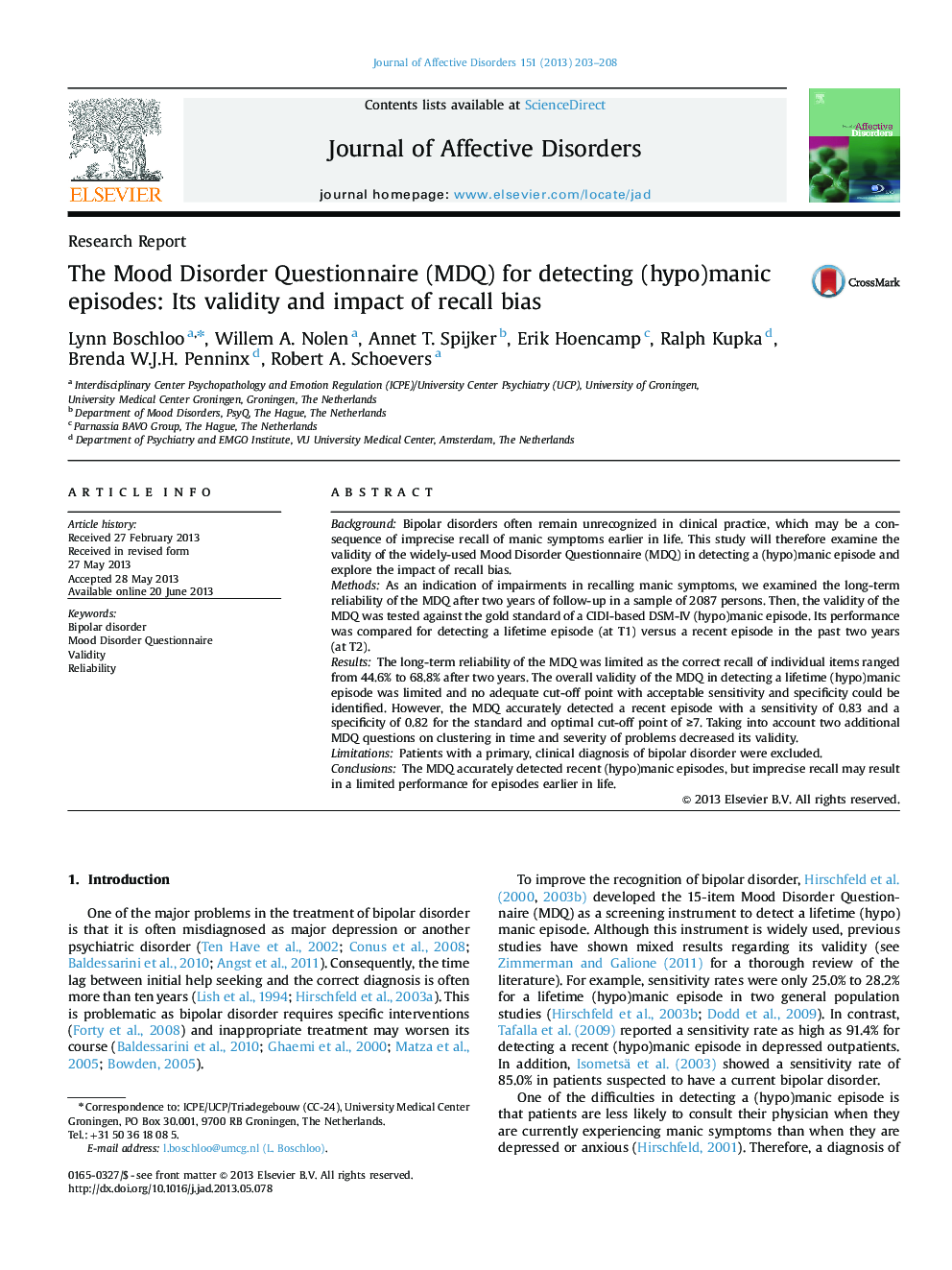| کد مقاله | کد نشریه | سال انتشار | مقاله انگلیسی | نسخه تمام متن |
|---|---|---|---|---|
| 6234067 | 1277555 | 2013 | 6 صفحه PDF | دانلود رایگان |

BackgroundBipolar disorders often remain unrecognized in clinical practice, which may be a consequence of imprecise recall of manic symptoms earlier in life. This study will therefore examine the validity of the widely-used Mood Disorder Questionnaire (MDQ) in detecting a (hypo)manic episode and explore the impact of recall bias.MethodsAs an indication of impairments in recalling manic symptoms, we examined the long-term reliability of the MDQ after two years of follow-up in a sample of 2087 persons. Then, the validity of the MDQ was tested against the gold standard of a CIDI-based DSM-IV (hypo)manic episode. Its performance was compared for detecting a lifetime episode (at T1) versus a recent episode in the past two years (at T2).ResultsThe long-term reliability of the MDQ was limited as the correct recall of individual items ranged from 44.6% to 68.8% after two years. The overall validity of the MDQ in detecting a lifetime (hypo)manic episode was limited and no adequate cut-off point with acceptable sensitivity and specificity could be identified. However, the MDQ accurately detected a recent episode with a sensitivity of 0.83 and a specificity of 0.82 for the standard and optimal cut-off point of â¥7. Taking into account two additional MDQ questions on clustering in time and severity of problems decreased its validity.LimitationsPatients with a primary, clinical diagnosis of bipolar disorder were excluded.ConclusionsThe MDQ accurately detected recent (hypo)manic episodes, but imprecise recall may result in a limited performance for episodes earlier in life.
Journal: Journal of Affective Disorders - Volume 151, Issue 1, October 2013, Pages 203-208